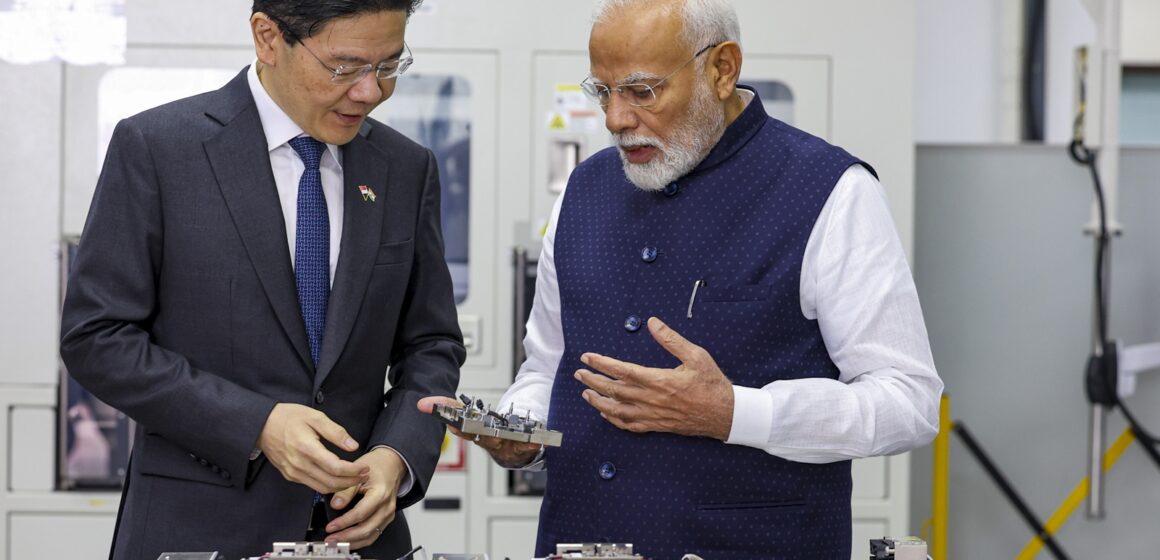India is stepping up its efforts to secure a significant role in the global semiconductor supply chain with new partnerships and strategic initiatives. This blog explores the reasons behind India’s semiconductor push, its recent collaborations with the US and Singapore, and the challenges it faces in becoming a leading player. Discover how events like SEMICON INDIA 2024 are helping India achieve its semiconductor ambitions.
1. Why Semiconductors Are Crucial for India’s Future
Semiconductors, often called the “new oil,” are fundamental components in modern technology, powering everything from smartphones to advanced military systems. As global demand for semiconductors surges, India is making a determined push to position itself as a critical player in this vital industry. For a country with aspirations to become a global tech leader, developing a robust semiconductor ecosystem is crucial. India’s efforts to bolster its semiconductor sector are not just about reducing dependency on imports but also about building strategic partnerships that can redefine its role in the global supply chain.
2. India’s Recent Moves in the Semiconductor Sector
India has been making headlines with its strategic initiatives in the semiconductor industry. The country’s aim is clear: to emerge as a global manufacturing hub for semiconductors. Recent announcements, such as the new semiconductor partnership with the United States and the earlier agreement with Singapore, reflect India’s growing ambitions. These partnerships are expected to strengthen India’s capabilities in semiconductor manufacturing, research and development, and talent development, setting the stage for a significant transformation in the country’s tech landscape.
3. New Partnerships: India’s Collaboration with the US and Singapore
India’s new semiconductor partnership with the US, announced on Monday, marks a significant step in securing a position in the global semiconductor supply chain. This partnership aims to explore mutual opportunities, drive innovation, and enhance supply chain resilience. Additionally, India’s agreement with Singapore to create a semiconductor ecosystem underscores the country’s commitment to building a strong and self-sufficient semiconductor industry. Both collaborations are expected to bring in investment, technology transfer, and advanced manufacturing techniques, crucial for India’s semiconductor aspirations.
4. SEMICON INDIA 2024: Showcasing India’s Ambitions
The “SEMICON INDIA 2024” event, taking place from September 11 to 13 in Greater Noida, serves as a platform to showcase India’s semiconductor ambitions. The event brings together key stakeholders, including industry leaders, government officials, and global semiconductor giants, to discuss trends, innovations, and strategies. It highlights India’s readiness to become a significant player in the semiconductor industry. With high-profile partnerships and a supportive policy environment, India is poised to capitalize on the growing global demand for semiconductors.
5. Navigating the Challenges in India’s Semiconductor Journey
Despite the positive momentum, India faces several challenges in its semiconductor journey. Building a competitive semiconductor ecosystem requires massive investments, cutting-edge technology, and skilled manpower. The country needs to focus on creating a favorable infrastructure, simplifying regulatory frameworks, and fostering an environment that encourages innovation and investment. Moreover, global geopolitical tensions, like the US-China chip war, pose both opportunities and risks that India must navigate carefully.
Will India Become a Global Semiconductor Hub?
India’s recent efforts and partnerships signal a strong intent to establish itself as a significant player in the global semiconductor market. While challenges remain, India’s proactive strategies, including partnerships with the US and Singapore and events like “SEMICON INDIA 2024,” demonstrate its commitment to advancing in this sector. With continued focus and strategic investments, India has the potential to transform into a global semiconductor hub, driving technological innovation and economic growth for the years to come.


Leave a Reply